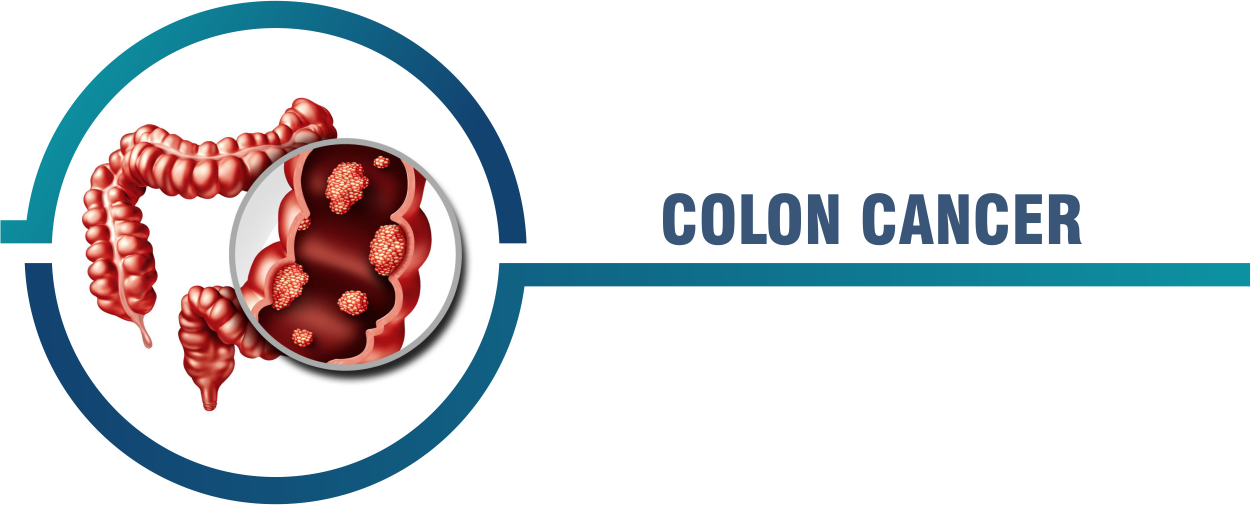
About Colon Cancer
The large intestine, usually known as the colon, is affected by colon cancer. Intestinal polyps are typically where it starts. Problems with the digestive system are frequent symptoms. Radiation therapy, chemotherapy, and surgery are all used in the course of treatment, which may necessitate a colostomy. A high-fiber, low-fat diet and a healthy lifestyle can help avoid colon cancer. Early-stage colon cancer can be found by screening.
Not only is cancer one of the most expensive diseases to treat financially, but it also tests a patient's mental fortitude, emotional stability, and courage. Patients are concerned about the rising cost of colon cancer therapy and medications. India is one of the top healthcare destinations in the globe, where a patient can receive superior colon cancer treatment at a significantly lower cost.
Symptoms
Early on in the disease, colon cancer is often symptomless in many patients. Depending on the size and location of the cancer in your large intestine, symptoms may differ when they do.
Colon Cancer symptoms include:
- Constipation, diarrhea, or a change in the stool's consistency that lasts for a long time are examples of persistent changes in bowel habits.
- Bleeding from the rectum or blood in the stools.
- Ongoing abdominal discomfort that includes cramps, gas, or pain.
- A sensation that your bowels aren't totally empty.
- Weakness or exhaustion.
- Unaccounted-for weight loss.
Risk Factor
The following elements may raise your risk of developing colon cancer:
- Older Age.
- A personal history of colorectal cancer or polyps.
- Inflammatory intestinal conditions.
- Inherited syndromes that increase colon cancer risk.
- Family history of colon cancer.
- Low-fiber, high-fat diet.
- A sedentary lifestyle.
- Diabetes.
- Obesity.
- Smoking.
- Alcohol.
- Radiation therapy for cancer.
- African-American race - Compared to people of other races, African-Americans are more likely to develop colon cancer.
Investigations
- Medical History.
- Blood Tests – CBC,Liver Enzymes, Tumor Markers etc.
- Colonscopy.
- Proctoscopy.
- Biopsy.
- Lab analysis of biopsy samples.
In the lab, biopsy samples from colonoscopies and surgeries are carefully examined. If cancer is discovered, additional lab tests may be performed on the biopsy samples to assist categorize the tumor and perhaps identify certain treatment choices.
- Gene Test.
- MSI & MMR Testing.
- Imaging Tests.
- CT or CAT Scan.
- Ultrasound.
- MRI Scan.
- Xray.
- PET Scan.
- Angiography.
| Procedure | India | Turkey | Dubai |
| (Price in USD) | (Price in USD) | (Price in USD) | |
| Chemotherapy | 2200 | 1500 | 24500 |
| PET Scan | 600 | 800 | 1900 |
| Colon Cancer Treatment | 6500 | 7500 | 25500 |
Note : This is an approximate cost and may vary depending on various condition of the patient health after physical evaluation.
Treatment Options
Side Effects
Possible complications following bowel cancer surgery include a leak where the surgeon connected the ends of your colon together or your gut not working properly. Infection, blood clots, and bleeding are some additional hazards.
- Clots of blood.
- Respiration difficulty.
- Chest pain.
- Spitting blood up.
- Feeling light headed or dizzy.
Benefits
Success Rate
The survival rate for colon cancer patients is 89.8%. The five-year disease-free survival rates in colon cancer patients were 100%, 97.7%, and 74.2% for stage I, II, and III respectively
